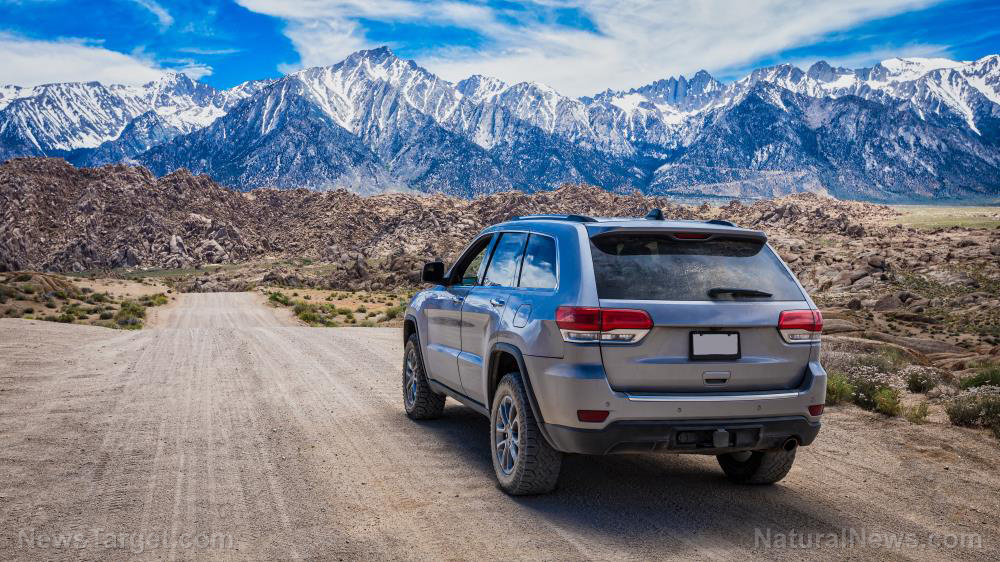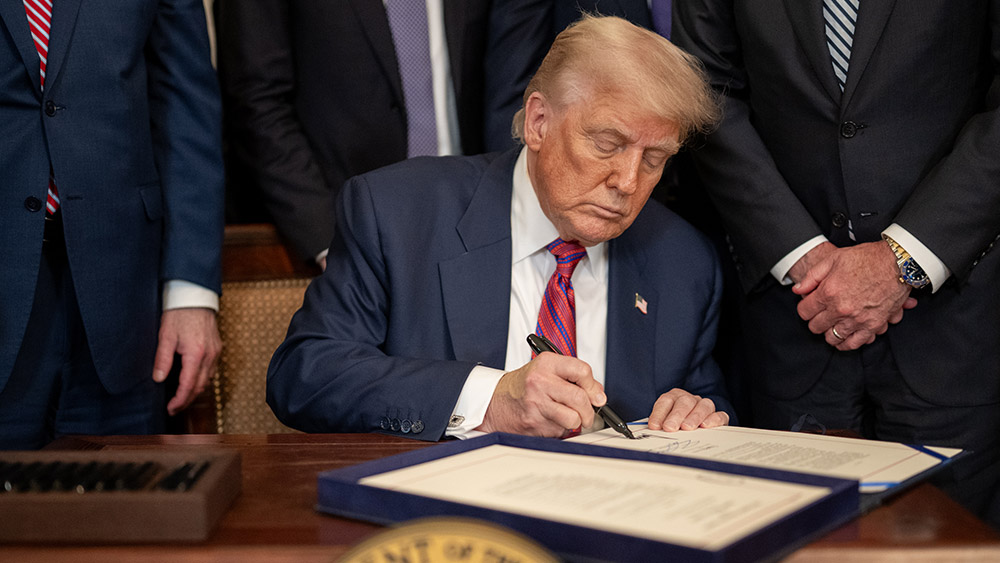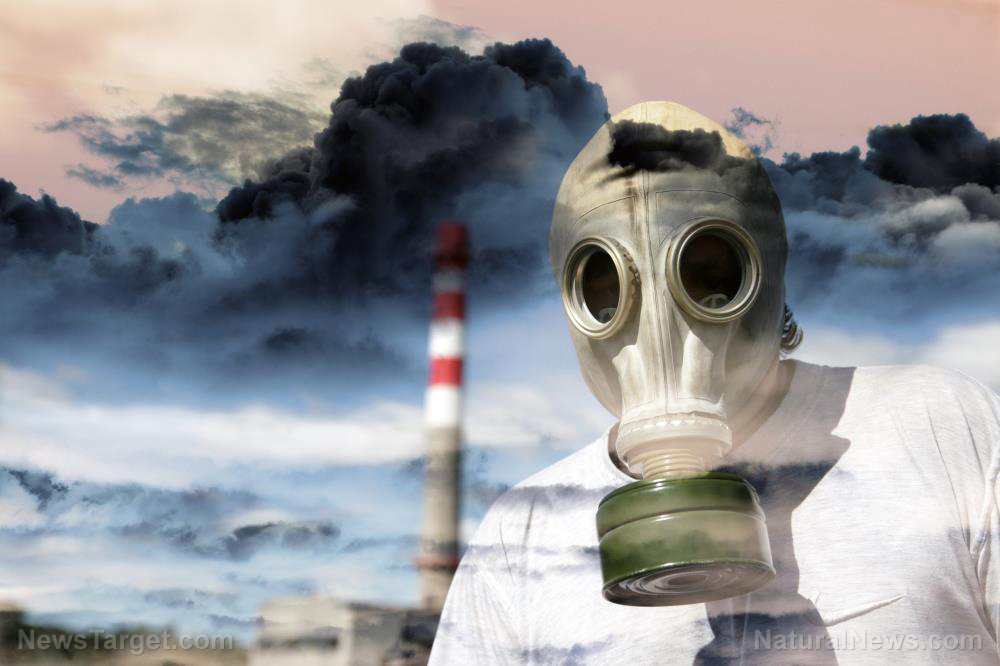Kia RECALLS almost 40,000 Sorento SUVs over fire risk
10/05/2025 / By Ramon Tomey

- Kia recalls 39,536 Sorento SUVs made between 2021 and 2023 due to faulty HVAC blower motor wiring harnesses that can overheat, causing smoke, melting smells or fires – even while parked.
- The defect was traced to cheap overseas suppliers, particularly thin wiring gauges from Mexico, slipping past quality checks. While only about one percent of vehicles is affected, fire risk is unacceptable.
- The NHTSA is criticized for slow response, allowing the defect to linger before announcing the recall. Owners will be notified starting Nov. 24 for free repairs (harness and resistor replacement).
- The 2024 Sorento models are excluded, suggesting Kia knew of flaw but kept selling older versions. This mirrors industry-wide pattern (Jeep fires, Tesla failures) of rushed production and cost-cutting.
- Profit-driven compromises endanger lives. Outsourcing, lax regulation and corporate prioritization of quarterly gains over safety persist without stricter accountability.
In yet another alarming example of corporate cost-cutting and lax quality control, Kia America has issued a recall for nearly 40,000 Sorento SUVs from model years 2021 to 2023 due to a faulty HVAC system that could overheat and catch fire – even while the vehicle is parked.
The National Highway Traffic Safety Administration (NHTSA) announced the recall on Sept. 25. According to the agency, the recall affects 39,536 Kia Sorento LX vehicles manufactured between September 2020 and December 2023 at Kia’s Georgia plant.
The defective part – a blower motor wiring harness – can overheat, potentially causing smoke, melting smells or even flames to erupt from the vents. Drivers are urged to watch for warning signs, including an inoperable HVAC blower motor or unusual burning odors. Owners will be notified by mail starting Nov. 24 and instructed to bring their vehicles to a Kia dealer for free repairs.
Kia estimates that only about one percent of the recalled vehicles – roughly 395 – actually have the defect. But given the catastrophic risk of a vehicle fire, even a single faulty unit is one too many.
Despite Kia’s measures to rectify the problem, the question remains: Why weren’t these defects caught before reaching consumers? The recall ultimately highlights the dangers of outsourcing critical components to cheap overseas suppliers, particularly Mexico, where thin wiring gauges slipped past quality checks.
Corporate greed on wheels: Kia Sorento recall exposes a deadly trend
This recall is just the latest in a string of automotive safety failures, raising serious concerns about the integrity of modern manufacturing and regulatory oversight. It also underscores a disturbing trend: Corporations prioritize profits over safety, outsourcing critical components to the lowest bidder.
Meanwhile, regulators fail to enforce stringent quality controls. The NHTSA, often criticized for its sluggish response to safety hazards, has once again allowed a known defect to linger before issuing a recall – long after drivers were already at risk. Consumers can check if their vehicle is included in the recall by searching the NHTSA database using their VIN or license plate number.
Kia’s solution – replacing the faulty blower motor resistor circuit harness and blower motor resistor – will be free for affected owners. But the inconvenience and potential danger should never have existed in the first place.
The 2024 Sorento models, equipped with a different HVAC system, are notably excluded from the recall. This suggests Kia was aware of the flaw yet continued selling older models without immediate correction.
This incident mirrors other recent recalls, such as Jeep’s spontaneous combustion issues and Tesla’s Cybertruck power failures, reinforcing a pattern of rushed production and corner-cutting in the auto industry. Brighteon.AI‘s Enoch warns that automakers cutting costs can lead to reduced safety features, increasing the risk of fatalities in accidents. These profit-driven compromises prioritize corporate agendas over human safety, demonstrating how financial and environmental pressures can have deadly consequences.
As corporate giants chase quarterly profits, everyday consumers pay the price – sometimes with their lives. Until regulators hold manufacturers accountable and demand transparency in supply chains, these preventable dangers will persist.
Watch this news report about Kia and Hyundai vehicles catching fire.
This video is from the harrier808 channel on Brighteon.com.
Sources include:
Submit a correction >>
Tagged Under:
big government, blower motor, cars, corporations, cost-cutting, dangerous, defective parts, HVAC system, Kia, Kia Sorento, National Highway Traffic Safety Administration, outrage, Product recall, products, regulators, SUV, transportation, vehicle safety
This article may contain statements that reflect the opinion of the author
RECENT NEWS & ARTICLES
COPYRIGHT © 2019 Dangerous.News
All content posted on this site is protected under Free Speech. Dangerous.News is not responsible for content written by contributing authors. The information on this site is provided for educational and entertainment purposes only. It is not intended as a substitute for professional advice of any kind. Dangerous.News assumes no responsibility for the use or misuse of this material. All trademarks, registered trademarks and service marks mentioned on this site are the property of their respective owners.




















